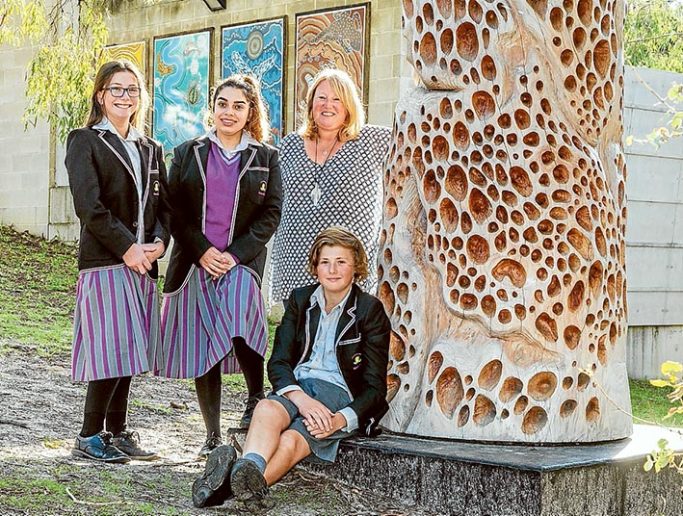
MT ELIZA Secondary College’s subject Real Time Learning focuses on enhancing student engagement through authentic activities.
It’s built on the principles of expansive education, where students feel a connection to others and a level of control over their learning.
The program aims to encourage community involvement by offering students opportunities to participate in real-world ventures.
In February a group of students, many who identify as being of Aboriginal descent, such as Wurundjeri, Gunditjmara, Yorta Yorta and Toogee, pitched an idea to school leaders for an outdoor classroom that includes a bush tucker garden and murals.
Given the green light, the group sought cultural guidance and donations of natural landscaping materials from the community, government groups and businesses.
“We worked closely with local Koorie engagement support officers to develop culturally appropriate resources and programs, ensuring cultural consent and authenticity,” teacher Narelle Debenham said.
The years 8 and 9 students soon acquired a “class set” of eucalyptus logs for story circle seating, bark chips, indigenous bush tucker plants and marine ply boards, and outdoor paint to create their murals.
“They teamed up with non-Indigenous students to design and paint four murals, each representing a natural element that supports life on earth: fire, air, water and soil,” Ms Debenham said.
The students learned that deep cultural and spiritual values, like totemism, played an important part in Aboriginal and Torres Strait Islander natural resource management.
Totemism is a belief and value system that connects human beings to other animals, plants and aspects of nature.
Groups and individuals are assigned to an animal that they are related to and have to care for. This gives them a profound sense of connection and responsibility for the natural world.
“The Koorie kids naturally drew inspiration from their personal clan totems to symbolise membership of the unit, and incorporated animals significant to their ancestors into their artwork,” Ms Debenham said.
“A priority was to educate other students and the extended school community about sustainable resources, their ancestors’ cultures, laws, ceremonies and connection to the land, but also, importantly, that Indigenous peoples don’t see themselves as “owning” either land, animals, plants or nature, but rather “belonging” with these things as equal parts of creation.
“Not surprisingly, the students can’t wait to harvest the bush tucker and eventually add it to the school’s food technology and cooking programs,” Ms Debenham said.
“What they thought were just weeds or ‘bush’, they now know can be used for food.”
Ms Debenham said the students consulted with Elder Auntie Carolyn to ask permission to name the garden. “Reciprocity is the ebb and flow of life, isn’t it; you give without expecting to receive.
“It’s a beautiful word.”
The artwork has been recognised by local indigenous groups and is currently on display at McClelland Gallery.
Reprinted from the December 2015 Australian Teacher Magazine.




